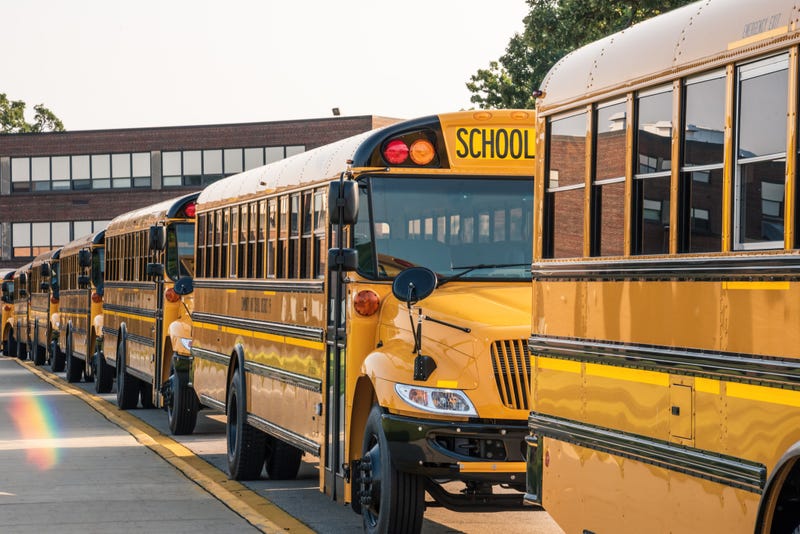
A Pasadena group is trying to get a measure on the ballot to make it easy for kids to leave public schools and to use state money for private education, including religious schools.
“The reason, of course, for school choice in California is first and foremost the terrible state of public education in California,” said Mike Alexander, the chairman of the California School Choice Foundation.
U.S. News and World Report ranked California 20th overall in the country in education in 2019. The state was 3rd for higher education and 40th for Pre-K to grade 12.

The Pasadena-based group says it wants to “[expand] educational opportunities” by “empowering parents to take advantage of free market solutions,” according to its website. Alexander said the Educational Freedom Act would allow parents to opt-out of public education. Each student would get $14,000 the state would normally spend for a child to attend public school, and the money would follow the student to pay for whatever education, private or public, the family chooses. The exact amount of money would be adjusted every year by the state Department of Finance to reflect changes in per-student spending.
The initiative acts similar to a voucher system but, instead, creates education savings accounts that families can use for schooling.
California voters have weighed in on school vouchers twice in the recent past. In 2000, 70.53 percent of voters rejected Proposition 38, which sought to “create a school vouchers program, providing at least $4,000 per pupil for private and religious schools per year.” The state similarly rejected a 1993 proposition called the Education Vouchers Initiative, by a margin of more than 2 to 1, the Los Angeles Times reported.
Additionally, The California School Choice Foundation’s website indicates it is concerned with more than just allowing parents to send their children to the best schools. A section of the website decries the subject matter of textbooks used at schools, saying “Many of the policies and textbooks engage in social engineering and are in opposition to our founding principles.” The website also has a section called “SeXXX Education” where it says “SeXXX Education for children - Too Young!”
Alexander, however, framed the issue as letting poor children access different schools.
“We have a crisis, particularly in the poor inner cities, of not getting quality education and the purpose of our initiative will be to make sure the parents can take their share of what are called Prop. 98 funds and send their children to a participating school of their choice whether it's a private school or a parochial school or a religious school,” he said.
Though the initiative aims to create education funds for families, it shares aspects of a voucher system by allowing parents to select which school receives tax dollars for education.
The California Teachers Association disagrees that voucher systems improve student success. “Studies continue to show there have been no significant improvements in student achievement in voucher schools. In fact, the most dramatic improvements in student achievement have occurred in places where vouchers do not exist,” said the CTA’s website.
The National Education Association also challenges Alexander’s claim that pitting private schools and public schools against one another for funding results in better student outcomes. According to a policy brief from the group, “vouchers do not improve public schools by creating competition. Public and private schools operate on very different playing fields so true competition between the two is impossible.”
The measure would allow for annual deposits into a savings account for each student. If there was any money left over, say, if parents chose to home-school their children, the money could be used for college.

